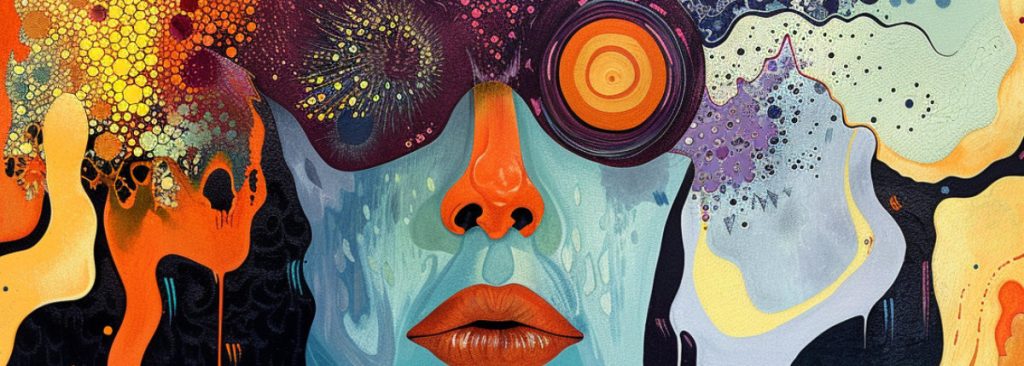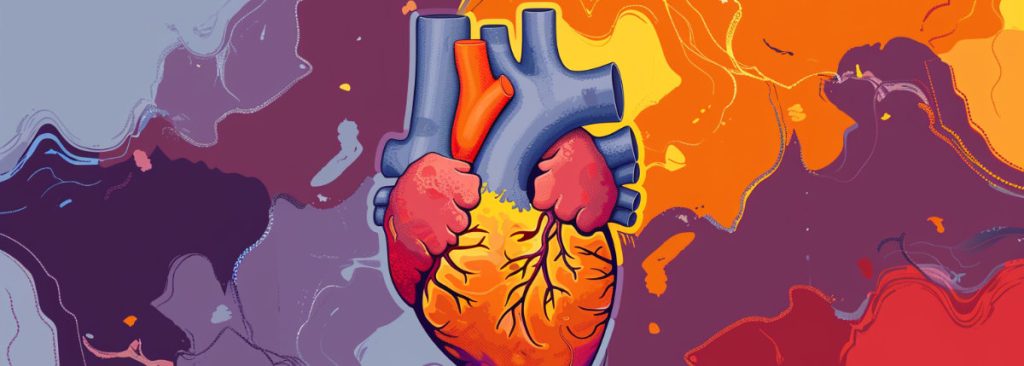In deze blog gaan we het hebben over een belangrijk onderwerp: wie er beter geen psychedelica kan gebruiken. Hoewel psychedelica zoals magische truffels voor veel mensen nuttig kunnen zijn, zijn ze niet voor iedereen geschikt. Het is super belangrijk om de mogelijke risico’s te begrijpen en te checken of ze wel veilig voor je zijn voordat je ze probeert.
We bespreken een aantal specifieke gezondheidsproblemen die psychedelica gevaarlijk kunnen maken. Ook leggen we uit waarom het zo belangrijk is om eerlijk te zijn over je medische geschiedenis als je met een begeleider werkt. Dus laten we erin duiken en meer leren over hoe je veilig met psychedelica kunt omgaan.
Het belang van je medische geschiedenis
Stel je voor: je hebt een vriend die dol is op gewichtheffen. Hij vertelt je steeds hoe geweldig hij zich er door voelt. Jij denkt: "Dat wil ik ook wel eens proberen!" Maar dan vergeet je hem te vertellen over die oude blessure aan je schouder. Als je dan die gewichten probeert op te tillen, schiet de pijn door je schouder. Je baalt enorm.
Psychedelica gebruiken terwijl je bepaalde gezondheidsproblemen hebt, is net zoiets als gewichtheffen met een pijnlijke schouder. Het is gewoon geen slim plan en kan de boel alleen maar erger maken. Voordat je aan magische truffels of andere psychedelica begint, is het daarom belangrijk om eerst even naar je gezondheid te kijken. Check of er redenen zijn waarom het misschien niet veilig voor je is.
Je medische geschiedenis is een overzicht van je vroegere en huidige medische problemen, behandelingen en hoe je op medicijnen reageert. Deze informatie is super belangrijk omdat het laat zien of er risico’s zijn bij het gebruik van psychedelica. Bijvoorbeeld, als je hartproblemen hebt gehad, kan het gevaarlijk zijn om iets te nemen dat je hartslag en bloeddruk verhoogt. Of als je eerder slecht op bepaalde medicijnen hebt gereageerd, reageer je misschien ook niet goed op psychedelica.
Praat met je gids
Voordat je aan een psychedelische ervaring begint, is het heel belangrijk om open en eerlijk met je begeleider te praten. Ze moeten je volledige medische geschiedenis weten om je veiligheid te kunnen garanderen. Vertel ze dus over eventuele psychische of lichamelijke problemen en welke medicijnen je gebruikt. Een goede begeleider kan dan beoordelen of psychedelica wel veilig voor je zijn. Als je besluit om door te gaan, kunnen ze ook zorgen voor een veilige en ondersteunende omgeving.

Geestelijke Gezondheid en Psychedelica
Heb je psychische problemen gehad, vooral als je moeite had om de werkelijkheid goed waar te nemen? Dan kun je beter geen psychedelica gebruiken. Dit geldt voor aandoeningen zoals schizofrenie, bipolaire stoornis met manische periodes, of als dit in je familie voorkomt. Ook met PTSS, zware depressie of paniekaanvallen kan je beter geen psychedelica nemen.
Je geest is als een goed verzorgde tuin. Psychedelica gebruiken als je deze aandoeningen hebt, is als een sterke, onvoorspelbare mestsoort toevoegen. Sommige planten groeien er misschien goed van, maar andere kunnen er juist slecht op reageren.
Schizofrenie en psychotische Stoornissen
Bij schizofrenie en andere psychotische stoornissen verlies je het contact met de werkelijkheid. Je kunt dan dingen zien of horen die er niet zijn. Psychedelica kunnen dit erger maken, wat heel beangstigend kan zijn. Voor mensen die zelf of in hun familie deze aandoeningen hebben, is er een veel groter risico op een psychotische episode.
Bipolaire stoornis
Bij een bipolaire stoornis, vooral als je snel manisch wordt, kunnen psychedelica een manische periode uitlokken of verergeren. Bij manie voel je je super opgewekt, hyperactief en doe je dingen zonder na te denken. Met psychedelica erbij kan dit gevaarlijk worden. Je kunt ongelukken krijgen of jezelf pijn doen.
PTSS en ernstige angst
Voor mensen met PTSS of erge angstklachten kunnen psychedelica heftige emoties en nare herinneringen oproepen. Zonder goede begeleiding kan dit leiden tot paniekaanvallen, extreme stress en verergering van de klachten. Soms worden psychedelica wel gebruikt om PTSS te behandelen, maar dat gebeurt dan onder strenge begeleiding van artsen. Probeer dit nooit zelf.
Lichamelijke gezondheid en psychedelica
Ook als je geestelijk in orde bent, kunnen bepaalde lichamelijke problemen het gebruik van psychedelica gevaarlijk maken. Let bijvoorbeeld extra goed op bij hartproblemen, epilepsie en zwangerschap.
Je lichaam is als een goed afgesteld instrument. Psychedelica gebruiken terwijl je bepaalde lichamelijke klachten hebt, is als een hard akkoord spelen op een kwetsbare snaar. Het kan te veel druk geven en de snaar doen knappen.
Hartproblemen
Psychedelica kunnen je hartslag en bloeddruk verhogen. Dat is riskant voor mensen met hartproblemen. Heb je last van hoge bloeddruk, hartritmestoornissen of heb je ooit een hartaanval gehad? Dan kan de extra druk van psychedelica op je hart erg gevaarlijk zijn. Het kan zelfs leiden tot een hartaanval of beroerte.
Epilepsie
Voor mensen met epilepsie kunnen psychedelica de kans op een aanval vergroten. De intense sensorische en emotionele ervaringen die je krijgt van psychedelica kunnen een aanval uitlokken. Zo’n aanval kan dan moeilijker te stoppen zijn en gevaarlijker worden als er niet snel medische hulp is.
Zwangerschap en borstvoeding
Tijdens zwangerschap en borstvoeding kunnen de stoffen die de moeder inneemt, het kind beïnvloeden. De effecten van psychedelica op een zich ontwikkelende foetus of een zogende baby zijn nog niet bekend, maar het risico op mogelijke schade is een belangrijke reden om voorzichtig te zijn.

Medicijnen en Psychedelica
Sommige medicijnen, vooral SSRI’s en MAO-remmers die gebruikt worden tegen depressie en angst, kunnen gevaarlijk zijn in combinatie met psychedelica. Het risico op serotoninesyndroom wordt dan groter, en dat kan levensgevaarlijk zijn.
Denk eens aan iemand met diabetes die medicijnen gebruikt. Die persoon moet goed op zijn bloedsuiker letten en dingen vermijden die zijn medicatie in de war kunnen schoppen. Zo is het ook voor mensen die SSRI's of MAO-remmers gebruiken. Ze moeten oppassen voor slechte reacties met psychedelica en hun gezondheid voorop stellen.
Je hersenchemie lijkt wel op een ingewikkeld recept, waarbij elk medicijn een specifiek ingrediënt is. Als je daar psychedelica aan toevoegt, is het alsof je een sterke specerij toevoegt. Voor sommigen maakt dat het gerecht lekkerder, maar voor anderen kan het alles verpesten en zelfs schadelijk zijn.
Samenvatting
Psychedelica kunnen voor sommige mensen heel waardevol zijn, maar ze zijn niet voor iedereen geschikt. Heb je bepaalde psychische of lichamelijke problemen, of gebruik je specifieke medicijnen? Dan kunnen psychedelica riskant of zelfs gevaarlijk voor je zijn.
Het allerbelangrijkste is dat je veilig en gezond blijft. Wees daarom altijd eerlijk tegen je begeleider over je gezondheid en de medicijnen die je gebruikt. Twijfel je of psychedelica wel geschikt voor je zijn? Praat er dan over met een zorgverlener die je vertrouwt. Die kan je helpen een goede keuze te maken.
Bij FLO Coaching kun je begeleide sessies doen met psilocybine-truffels. Ervaren coaches helpen je daarbij. Heb je vragen of wil je hulp bij het voorbereiden van je eerste psychedelische ervaring? Neem dan contact met ons op. We laten je graag op een verantwoorde manier kennismaken met de bijzondere wereld van bewustzijnsverruiming. Zo begeleiden we je naar een nieuwe fase van holistische gezondheid en welzijn.
Veelgestelde Vragen over Contra-indicaties
Sommige gezondheidsproblemen kunnen het gebruik van psychedelica gevaarlijk maken. Twijfel je? Praat dan met een zorgverlener die je vertrouwt. Die kan je helpen een goede beslissing te nemen op basis van je medische geschiedenis en hoe gezond je nu bent. Een goed gesprek met een zorgprofessional is belangrijk. Die kan ontdekken of je bepaalde aandoeningen hebt waardoor psychedelica slecht voor je kunnen zijn. Zo zorg je ervoor dat je veilig en gezond blijft.
Mensen met schizofrenie, bipolaire stoornis met manische episodes, of een familiegeschiedenis van deze aandoeningen moeten psychedelica vermijden. Degenen met PTSS, ernstige depressie of paniekaanvallen lopen ook een verhoogd risico.
Psychedelica kunnen hallucinaties en wanen erger maken. Dit kan leiden tot een psychose en zware psychische problemen. Psychedelische ervaringen zijn vaak intens en onvoorspelbaar. Je kunt je grip op de werkelijkheid verliezen. Ook kunnen angst en achterdocht toenemen. Dit kan te veel worden en moeilijk onder controle te houden zijn. Soms blijven de psychische effecten lang aanwezig, ook als de drug al is uitgewerkt. Dit kan blijvende schade veroorzaken. Medische hulp is dan nodig.
Mensen met een bipolaire stoornis kunnen beter geen psychedelica gebruiken. Vooral als je snel manisch wordt, is het gevaarlijk. Psychedelica kunnen namelijk een manische periode veroorzaken of erger maken. Ze veranderen je bewustzijn en geven sterke zintuiglijke ervaringen. Dit kan je stemming flink in de war schoppen en de klachten van bipolaire stoornis verergeren. Als je aanleg hebt voor manische periodes, kan de opwekkende werking van psychedelica problemen geven. Je kunt veel te veel energie krijgen, dingen doen zonder na te denken en weinig slaap nodig hebben. Dit kan uitmonden in een volledige manische periode. Vanwege deze grote risico’s is het belangrijk dat mensen met een bipolaire stoornis geen psychedelica gebruiken. Zo blijf je stabieler en worden je klachten niet erger.
Psychedelica kunnen het het cardiovasculaire systeem – je hart en de bloedvaten – behoorlijk belasten. Ze kunnen je hartslag en bloeddruk verhogen. Dit kan gevaarlijk zijn als je hartproblemen hebt. Denk bijvoorbeeld aan een hoge bloeddruk, een onregelmatige hartslag of als je ooit een hartaanval hebt gehad.
Psychedelica kunnen de kans op een epileptische aanval vergroten. Ze beïnvloeden namelijk de elektrische activiteit in je hersenen. Hierdoor kunnen de zenuwbanen in je hersenen ontregeld raken. Vooral als je al gevoelig bent voor aanvallen, is dit risico groter. Dit geldt dus vooral voor mensen met epilepsie of andere aandoeningen waarbij je aanvallen kunt krijgen. Zonder snelle medische hulp kan zo’n situatie erg gevaarlijk worden.
SSRI’s en MAO-remmers kunnen gevaarlijk reageren met psychedelica. Dit verhoogt het risico op serotoninesyndroom. Dit is een levensgevaarlijke aandoening die ontstaat door te veel serotonine in de hersenen. Als de serotonine te hoog wordt, kun je allerlei klachten krijgen. Denk aan verwardheid, koorts, een snelle hartslag, wijde pupillen en stijve spieren. In ernstige gevallen kunnen aanvallen of bewusteloosheid optreden. Deze symptomen kunnen snel verergeren. Je hebt dan meteen medische hulp nodig om ernstige complicaties te voorkomen. De combinatie van psychedelica met SSRI’s of MAO-remmers is extra gevaarlijk omdat ze allebei de serotonine verhogen. Je lichaam kan de serotonine dan niet meer goed regelen, waardoor serotoninesyndroom kan ontstaan. Het is dus heel belangrijk dat mensen die SSRI’s of MAO-remmers gebruiken, weten hoe gevaarlijk het kan zijn om deze medicijnen te combineren met psychedelica.


